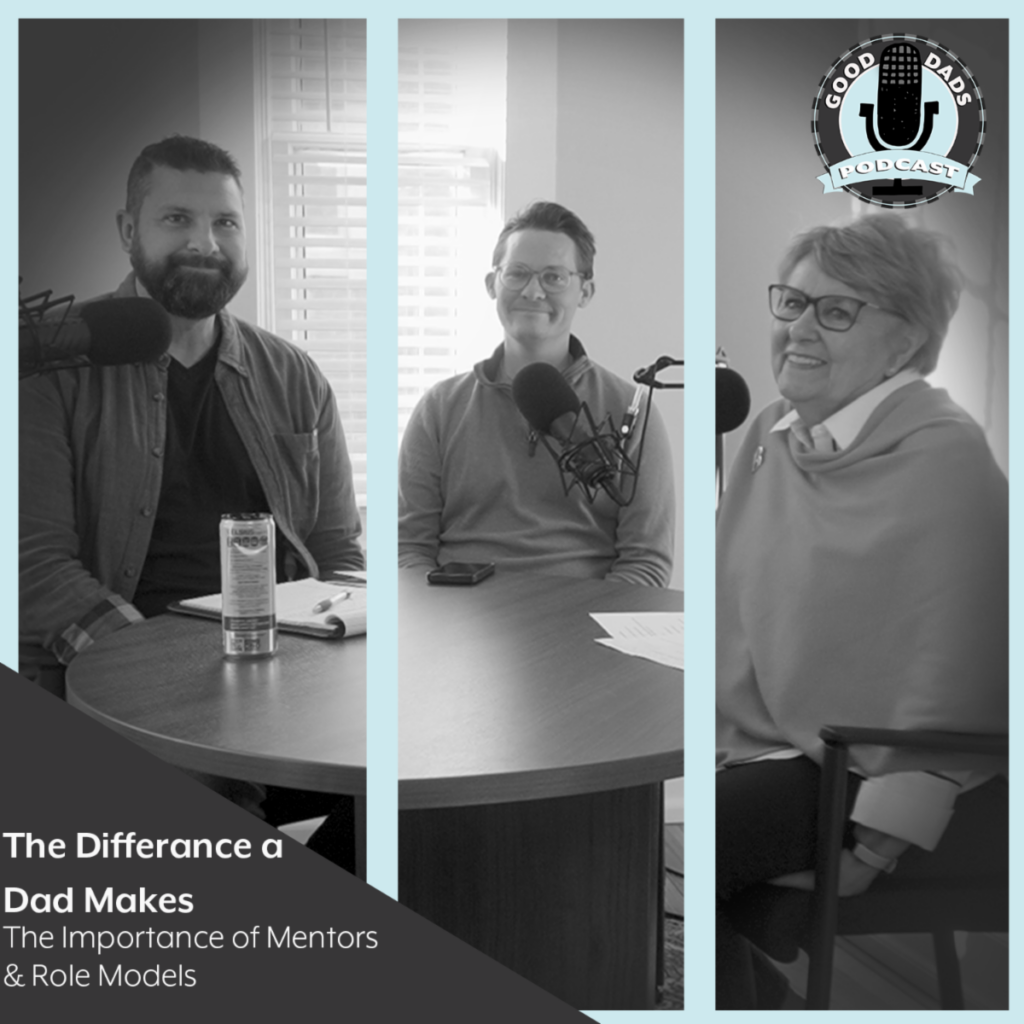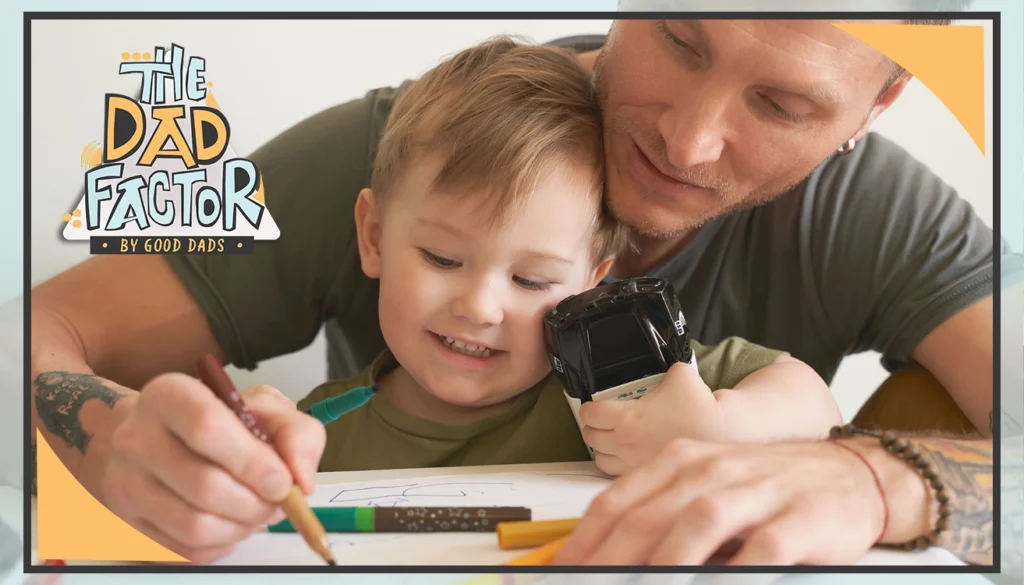The Good Dads Blog features some curated content from online resources. This post originally appeared on the Northern Life Magazine website and was not written by Good Dads staff. Reposted with permission.
Being a father is one of life’s most significant roles, but it can also be one of the most daunting, especially if you’ve never had a positive role model to emulate. For many men, the absence of a father figure growing up can lead to uncertainties about how to guide, support, and inspire their own children. The challenge becomes even more pronounced for fathers facing additional hurdles, such as those who have been incarcerated, experienced trauma, or lacked access to tools and support.
What is role modeling?
A role model is someone whose behavior, attitudes, and actions serve as an example for others to follow. For fathers, being a role model means demonstrating qualities such as respect, responsibility, kindness, and resilience in their daily lives. It’s about showing children how to navigate challenges, form healthy relationships, and contribute positively to the world.
Role modeling isn’t about being perfect, it’s about consistency and authenticity. Children learn by observing how their parents handle stress, solve problems, and interact with others. It’s often the small, everyday actions that make the most significant impact.
The role model deficit: Understanding the problem
In the UK, an estimated 2.4 million children grow up without a father figure, according to the Centre for Social Justice. The impact of this absence is profound: children without active and positive paternal involvement are more likely to face mental health issues, struggle academically and engage in criminal activity. For boys in particular, the absence of a father figure often leaves a void in understanding how to navigate manhood.
Fathers themselves aren’t immune to the consequences of this deficit. Many men who didn’t grow up with role models find themselves lacking the confidence or knowledge to step into that role for their own children.
The impact of incarceration
For fathers who have been incarcerated, the challenges are even greater. The UK prison population hovers around 80,000, with an estimated 95% of prisoners being male. Studies suggest that up to 40% of prisoners are fathers, meaning tens of thousands of children have a parent behind bars. Children of incarcerated parents are five to six times more likely to enter the criminal justice system themselves.

Breaking the cycle: How to be a role model
If you’ve never had a role model, stepping into the role of one may feel overwhelming. But with determination, support, and the right tools, it’s entirely possible to break the cycle and create a positive legacy for your children.
1. Focus on presence, not perfection
Being a role model doesn’t mean being perfect. Children benefit most from a father who is consistently present, both physically and emotionally. We often think it’s the big things, like holidays or expensive gifts, that children remember. But more often, it’s the small, consistent actions that have the longest-lasting impact: Showing up to school plays, helping with homework, or simply keeping your word.
Tip: Set aside regular one-on-one time with your child, whether it’s reading together, playing a game, or simply talking about their day.
2. Acknowledge your past and commit to growth
If you’ve faced challenges, such as incarceration or a lack of positive examples growing up, acknowledge those experiences but don’t let them define your future. Use them as motivation to break the cycle for your children.
Tip: Share age-appropriate stories about your past struggles and what you’ve learned. This honesty can inspire resilience and teach your children about the value of growth.
3. Learn what you don’t know
If you feel unprepared for fatherhood, seek resources and education. Parenting classes, books and online courses can help fill gaps in your knowledge.
Programs like the UK’s Fathers Inside have shown that providing incarcerated fathers with parenting education reduces reoffending rates and improves family relationships.
4. Be a positive example
Children watch what you do more than they listen to what you say. Demonstrate qualities like respect, responsibility and kindness in your daily actions.
Tip: Model healthy behaviors, such as managing stress constructively, maintaining a strong work ethic and treating others respectfully.
5. Build a support network
Surround yourself with supportive people, family members, friends, or community groups, who can provide guidance and encouragement.
Tip: Join local fatherhood support groups or community initiatives that focus on strengthening family relationships. These groups can offer practical advice and a sense of camaraderie.
The importance of tools and support
For many fathers, particularly those from disadvantaged backgrounds, the lack of access to tools and resources can be a significant barrier to being a positive role model.
Access to education and training
Education and skills training are critical for fathers looking to improve their circumstances and set an example for their children. Programs aimed at upskilling fathers can have a transformative impact.
Emotional and mental health support
Men are often reluctant to seek help for mental health challenges, but addressing these issues is key to being a supportive father.
Community resources
Organisations like the Prison Reform Trust and Barnardo’s provide resources specifically designed to support fathers in reconnecting with their families post-incarceration. Additionally, initiatives like the Clink Charity offer vocational training to help fathers secure stable employment.
The ripple effect: The impact of positive fatherhood
When fathers step into their role as positive role models, the effects ripple out far beyond their immediate family. Studies show that children with involved fathers are:
- 43% more likely to earn better grades in school.
- 50% less likely to abuse drugs or alcohol.
- 75% less likely to have a child in their teenage years.
Conclusion: Redefining fatherhood, one role model at a time
Becoming a role model when you’ve never had one is undoubtedly challenging, but it’s also one of the most impactful things a father can do. By committing to presence, growth, and learning, fathers can break generational cycles and inspire their children to reach their full potential.
Fatherhood is a journey, not a destination. And even if you’ve never had a map, it’s never too late to find a new course.




